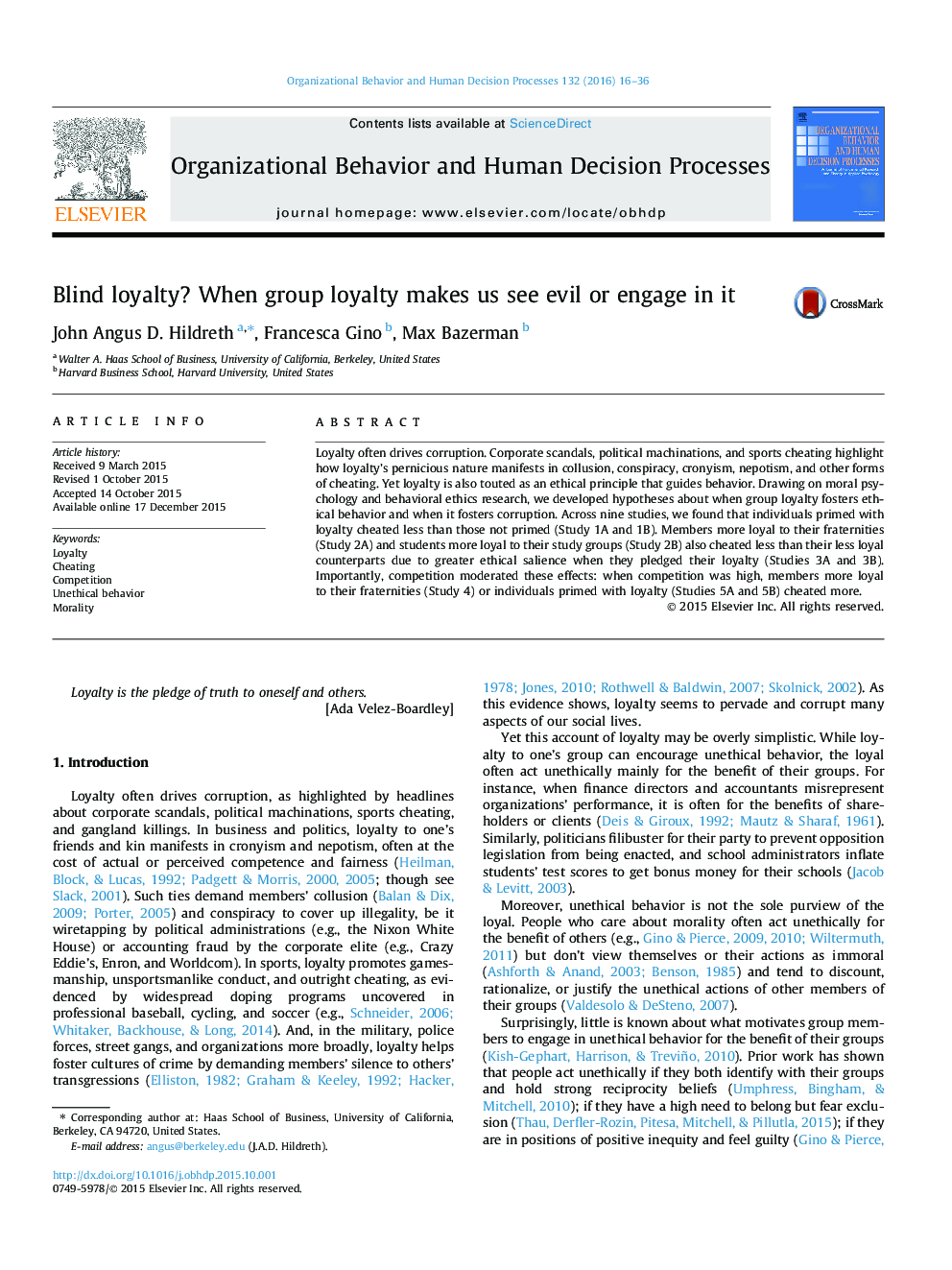| Article ID | Journal | Published Year | Pages | File Type |
|---|---|---|---|---|
| 888507 | Organizational Behavior and Human Decision Processes | 2016 | 21 Pages |
•We define loyalty as the principle of partiality toward an object (e.g. group).•Across nine studies we found that loyalty reduced rather than increased cheating when group goals were unclear.•Pledging loyalty increased the salience of ethics which led to less cheating.•Competition moderated these effects: when competition was high the loyal cheated more.•The findings are consistent with loyalty’s role as an ethical principle.
Loyalty often drives corruption. Corporate scandals, political machinations, and sports cheating highlight how loyalty’s pernicious nature manifests in collusion, conspiracy, cronyism, nepotism, and other forms of cheating. Yet loyalty is also touted as an ethical principle that guides behavior. Drawing on moral psychology and behavioral ethics research, we developed hypotheses about when group loyalty fosters ethical behavior and when it fosters corruption. Across nine studies, we found that individuals primed with loyalty cheated less than those not primed (Study 1A and 1B). Members more loyal to their fraternities (Study 2A) and students more loyal to their study groups (Study 2B) also cheated less than their less loyal counterparts due to greater ethical salience when they pledged their loyalty (Studies 3A and 3B). Importantly, competition moderated these effects: when competition was high, members more loyal to their fraternities (Study 4) or individuals primed with loyalty (Studies 5A and 5B) cheated more.
